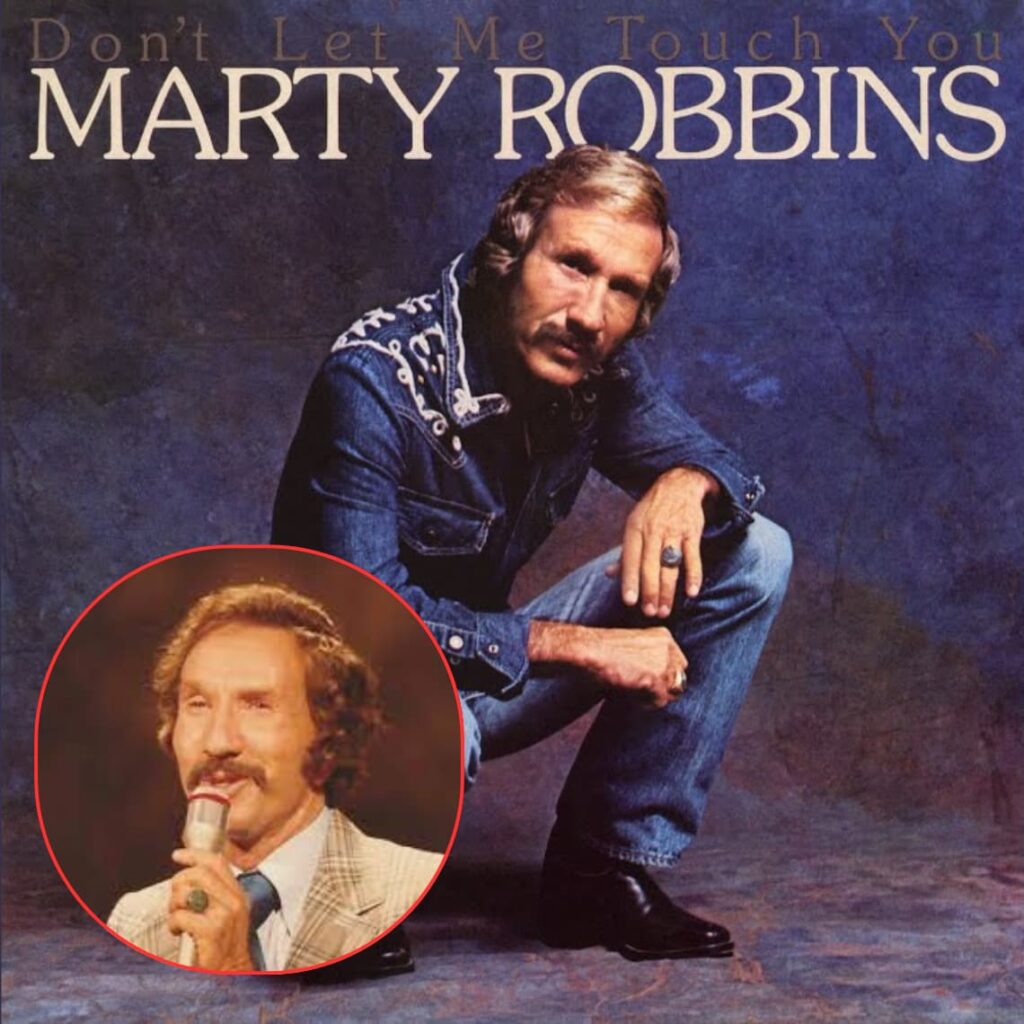
A Painful Plea for Self-Control in the Face of Unyielding Desire
Ah, 1977. A year of disco lights and punk rock sneers, but for many of us, it was also a time when the heartland still beat strong with the enduring melodies of country music. And in that landscape, few voices resonated with the depth and sincerity of Marty Robbins. Today, we’re casting our minds back to one of his lesser-sung, yet profoundly impactful tracks: “Don’t Let Me Touch You.” This poignant ballad, released as a single from his album “Adios Amigo,” didn’t scale the lofty heights of his earlier mega-hits like “El Paso.” While it may not have dominated the airwaves like some of the chart-toppers of the era, it quietly carved its own space, reaching a respectable No. 12 on the Billboard Hot Country Singles chart. Its presence in the Top 20 was a testament to Robbins’ enduring appeal and the song’s raw emotional honesty, resonating deeply with a loyal fanbase who understood the complexities of the human heart he so eloquently explored.
The story behind “Don’t Let Me Touch You” is less about grand biographical events and more about the universal, often agonizing, internal struggles we all face. Marty Robbins was a master storyteller, not just in the narratives of his cowboy ballads, but in capturing the nuances of human emotion. This song, in particular, feels like a page torn from a personal diary, a confession whispered in the quiet hours of the night. It speaks to a profound dilemma: the intense, almost overwhelming pull of desire, juxtaposed with the agonizing awareness that acting on that desire would lead to deeper pain or betrayal. It’s a song that doesn’t shy away from the messy realities of relationships, the temptations that lurk, and the self-imposed boundaries we sometimes desperately need to maintain.
The meaning embedded within “Don’t Let Me Touch You” is multi-layered, but at its core, it’s a desperate plea for restraint. It’s the voice of someone teetering on the brink, recognizing the destructive potential of their own impulses. The singer is asking, almost begging, their beloved to create a barrier, to physically prevent them from crossing a line that, once breached, cannot be uncrossed. This isn’t a song about a lack of love; quite the opposite. It’s about a love so intense, perhaps so complicated or forbidden, that the only way to preserve some semblance of order or prevent inevitable heartbreak is to resist the very urge that draws them together. For some, it might evoke memories of unrequited love, where the touch itself becomes a dangerous precipice, promising fleeting joy at the cost of enduring sorrow. For others, it might resonate with the quiet battles fought within committed relationships, where understanding boundaries and respecting vulnerabilities are paramount.
Think back to those simpler times, when emotions, though complex, were often expressed with a directness that sometimes feels lost today. Robbins’ delivery in this song is a masterclass in conveying vulnerability. His voice, always rich and expressive, carries a weary resignation, a hint of desperation, and an undeniable tenderness. He’s not singing about a casual flirtation; he’s singing about a soul-deep struggle. The instrumentation, typical of country music of that era, is understated, allowing Robbins’ vocal performance and the lyrical content to take center stage. The gentle steel guitar weeps alongside his plea, and the subtle rhythm section provides a steady, almost comforting, heartbeat to the emotional turmoil unfolding.
This song, though perhaps not a radio staple today, serves as a beautiful time capsule, reminding us of a period when country music wasn’t afraid to delve into the tougher aspects of the human condition. It’s a testament to Marty Robbins’ artistry that he could take such a deeply personal, almost agonizing, sentiment and turn it into a universal anthem for anyone who has ever had to fight their own desires for the sake of a greater good, or to prevent a greater pain. So, as we listen to “Don’t Let Me Touch You” once more, let us not just hear the notes, but feel the echoes of those silent battles, those moments of profound self-awareness, and the enduring power of a voice that understood the intricacies of the heart like few others. It’s a song that encourages reflection, inviting us to consider our own moments of temptation and the strength it takes to choose a path of restraint, even when every fiber of our being yearns for something else.